Ten UC San Diego Faculty Named 2012 AAAS Fellows
By:
- Susan Brown
Published Date
By:
- Susan Brown
Share This:
Article Content
Ten professors at the University of California, San Diego have been named Fellows of the American Association for the Advancement of Science, the nation’s largest scientific organization. They are among 702 members selected this year by colleagues in their disciplines to be honored by the association for “scientifically or socially distinguished efforts to advance science or its applications.”
The new Fellows, who were announced in this week’s issue of the journal Science, will be presented with an official certificate and rosette pin on February 16 at the AAAS Annual Meeting in Boston.
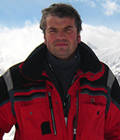
Dimitri Basov
Dimitri Basov a professor of physics in the Division of Physical Sciences and chair of the Department of Physics was cited for “distinguished contributions to spectroscopic studies of new materials.” Basov’s group uses infrared light to probe the electronic and magnetic properties of novel materials such as superconductors, spintronic devices and organic nanoelectronics. He is a fellow of the American Physical Society and was awarded the organization’s Frank Isakson Prize for Optical Effects in Solids in 2012.
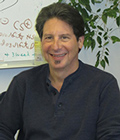
Jeffrey Esko
Jeffrey Esko a professor in the Department of Cellular and Molecular Medicine, UC San Diego School of Medicine and co-director of UC San Diego’s Glycobiology Research and Training Center was elected for “pioneering contributions to the understanding of the chemistry, biochemistry and cell biology of cell-surface glycans.” Esko’s team utilizes a combination of chemistry, cell biology and genetics to understand the structure and function glycans, chains of sugar molecules found on the surfaces of cells, particularly the glycan heparan sulfate. They discovered that heparan sulfate in the liver helps the body clear triglycerides from the blood, a finding that could pave the way for new therapies for artherosclerosis, and that targeting this sugar molecule on blood vessels may inhibit cancer growth.
Benjamin Grinstein a professor of physics in the Division of Physical Sciences is a theorist who the decay of heavy quarks to discover fundamental principles that govern the basic building blocks of nature and their interactions. A member of the High Energy Theory Group, he was recognized for distinguished contributions to the field of particle physics, leading to accurate tests of theory and the precise determination of fundamental constants of nature.” He recently developed a test for string theory based on how particles called W bosons scatter in high energy collisions, like those being carried out at the Large Hadron Collider.
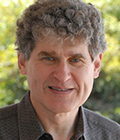
David Kleinfeld
David Kleinfeld a professor of physics in the Division of Physical Sciences is pursuing a broad range of questions about the brain including how rodents wave their whiskers to assemble a stable representation of the physical world through touch and the fluid dynamics of blood as it flows through the brain or is blocks, as it can be in stroke. He was cited “for distinguished contributions in quantitative neuroscience, including active sensation of the vibrissa sensorimotor system, blood flow dynamics within cortical vasculature, and novel analysis and instrumentation.”
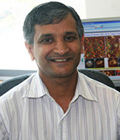
Ratnesh Lal
Ratnesh Lal a professor in the Jacobs School of Engineering, is an authority on biomedical applications of atomic force microscopy and nanoscale imaging of complex biological systems. Research in his lab involves the development of nanotechnologies for, and multi-scale biophysical and system biology studies of, channels and receptors. His research on amyloid ion channel paradigm provides a new perspective on the mechanism underlying protein misfolding diseases, including Alzheimer's disease, ALS, diabetes and many systemic diseases. His research on the structure-function of hemichannels that connect cells to their surroundings and to each other provides a new mechanism for cell growth as well as mechanics and new pathways underlying toxicity of oxidative stress and other environmental agents, including smoking. His lab also designs nanosensors and devices for biomedical diagnostics and therapeutics.
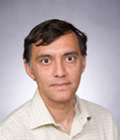
Aneesh Manohar
Aneesh Manohar a professor of physics in the Division of Physical Sciences “for distinguished contributions to the field of elementary particle physics, particularly for the development of effective field theory methods and their application to quantum field theory.” He is a member of the international Particle Data Group, which publishes the biennial Review of Particle Physics outlining critical issues in physics that help to shape our understanding of the universe. Manohar is an author, with Mark Wise, of the book Heavy Quark Physics.
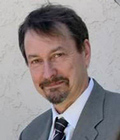
John Newsam
John Newsam an adjunct professor of chemistry and biochemistry in the Division of Physical Sciences has co-founded six companies and is currently chairman and CEO of Tioga Research in San Diego. Newsam has held senior or executive positions in several science-based companies, following an early research career in materials chemistry, including zeolites, microporous, aluminosilicate minerals commonly used as commercial adsorbents. Newsam was elected “for distinguished contributions to the structural science of materials of industrial significance, especially zeolites, and to science entrepreneurship. He has taught courses in entrepreneurship and business strategies at UC San Diego where he has held and adjunct position since 2008.
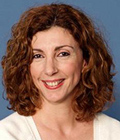
Katerina Semendeferi
Katerina Semendeferi, a professor of anthropology in the Division of Social Sciences and an advisory board member of the Kavli Institute for Brain and Mind, is a biological anthropologist interested in the evolution of the human brain and behavior. Her interdisciplinary research compares the neuroanatomy of brains in humans, apes and other primates – to explore the neural systems involved in complex cognitive and emotional processes, as well as in mental disorders. A member of the UC San Diego faculty since 1997, Semendeferi is cited by AAAS “for distinguished contributions to scientific knowledge about comparative primate neuroanatomy, particularly for pioneering research on the prefrontal substrates of advanced cognitive abilities in humans.”
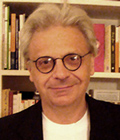
Victor Vianu
Victor Vianu a professor in the Jacobs School of Engineering is an expert in database theory and computational logic who has contributed to the foundations of modern database languages. Vianu devised an abstract model of databases as a "relational machine," leading to a better understanding of the computational complexity of data processing. He has shown that automata theory provides a valuable tool for analyzing modern query languages on data in XML form, the Web standard for data exchange. XML and the Web increasingly form Vianu's focus. He is developing type-checking and verification algorithms to guarantee the robustness of Web applications centered around data; designing databases able to respond to queries with only partial information available; and exploring how useful information can be extracted from streams of XML wrapped data. Vianu has also worked on spatial databases, showing how queries can take advantage of annotations about the topology of spatial data.
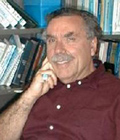
Arthur Wolfe
Arthur Wolfe a professor of physics in the Division of Physical Sciences and UC San Diego’s Center for Astrophysics and Space Sciences studies the formation of galaxies, particularly the set of early events that allowed gave rise to the rotating disks of stars and gas that we find in spiral galaxies today. Wolfe was elected “for distinguished contributions to the fields of astronomy and cosmology, particularly for predicting anisotropies in the cosmic microwave background and discovering Damped Lyman Alpha Systems,” cold, quiescent layers of neutral hydrogen gas that likely held the component of the early universe that became stars.
Share This:
You May Also Like
Stay in the Know
Keep up with all the latest from UC San Diego. Subscribe to the newsletter today.



